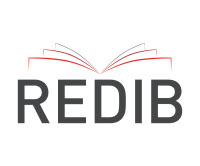Construção da identidade interseccional: uma análise crítica do discurso sobre mudanças sociais e discursivas de/para mulheres surdas
DOI:
https://doi.org/10.21680/1517-7874.2019v21n2ID17030Abstract
The discussion about the role of women has gradually occupied a place of commitments of governmental and academic agendas over the last decades (FONTANA; FERRARI, 2017). Laws, decrees, social programs and also academic projects have responded to this issue. All these commitments lead to social changes, and they are also the results of mobilizations of social minorities that are focus of the theoretical basis called Critical Discourse Analysis [CDA] (FAIRCLOUGH, 2008; RESENDE, 2017) as well as the Brazilian approach to CDA – Abordagem Sociológica e Comunicacional do Discurso – ASCD (PEDROSA, 2018). Our research at UFRN and UFS (Federal University of Sergipe, where I currently work) aimed at vulnerable groups for 6 years, and among them, the deaf community. So, from a corpus formed by life narratives and the introductory text of the curriculum lattes of this community, we will select an example of each gender, specifically, deaf women, in order to proceed with the methodological basis of the qualitative-interpretive research. For the analyses, we will work with the socioanalysis based on the Sociologia para a Mudança Social – SMS - (BAJOIT, 2013). The results aim to achieve the general objective of verifying how the life narratives and the introductory text of the curriculum lattes show the disillusionment and victories of/for the deaf woman as to the intersectional constitution of her identity in the context of the history of her education.
Downloads
Downloads
Published
How to Cite
Issue
Section
License

Este trabalho foi licenciado com uma Licença Creative Commons - Atribuição - NãoComercial - CompartilhaIgual 3.0 Não Adaptada.
 Português (Brasil)
Português (Brasil) English
English Español (España)
Español (España)









.jpg)




